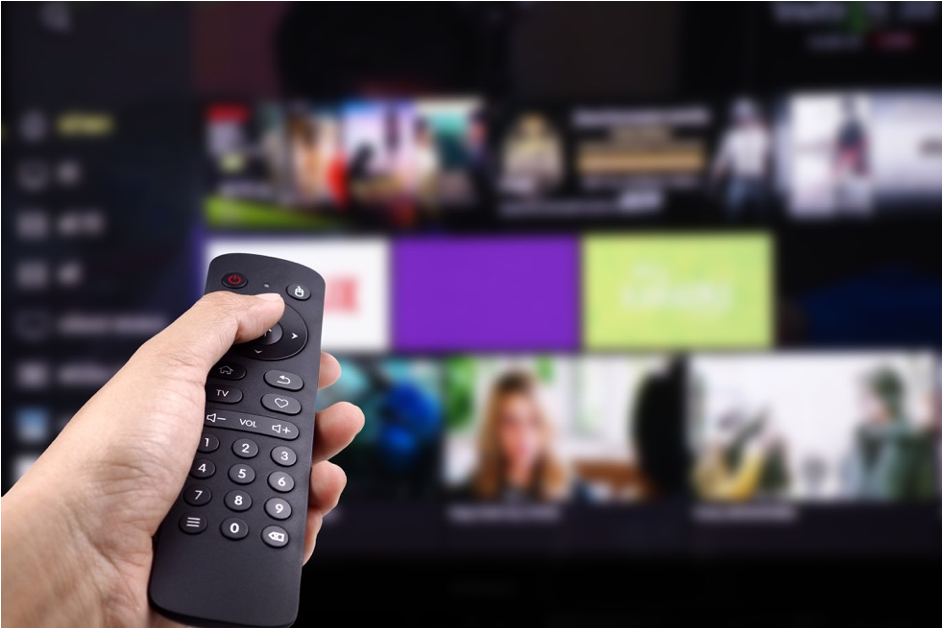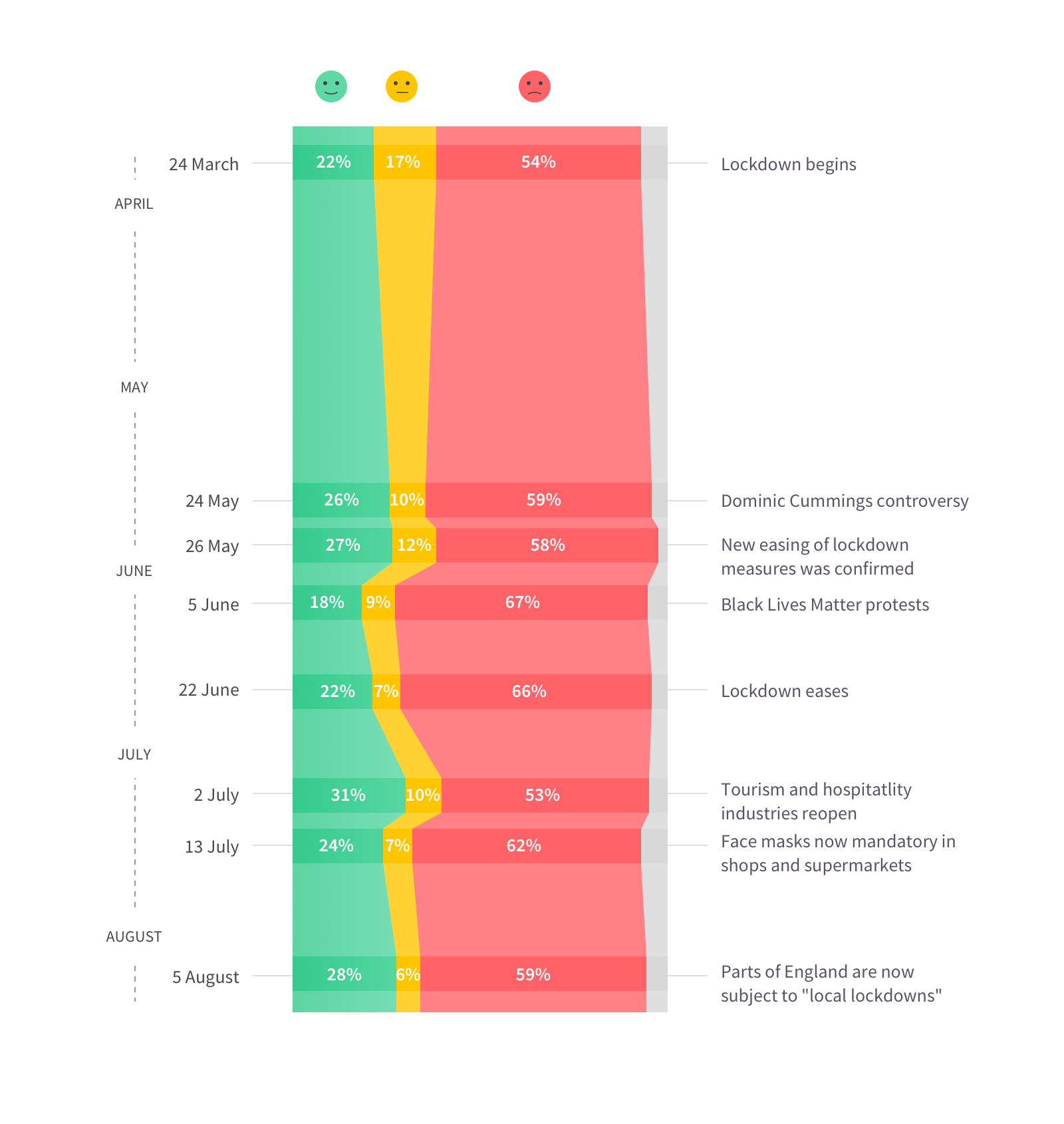The Reliance on Humanless Interactions – Case study: The Pausing of Sky Sports Subscription

Base: 1200 UK app-based citizens
Male/Female: 30%/70%
18-24/25-34/35-44/45-54/55+: 14%/42%/27%/13%/4%
Using the CitizenMe platform, we went out to our COVID-19 community, which is an open-data research project designed to enable the world's citizens to share real-time opinions and data about COVID-19 with the institutions fighting the epidemic.
The reliance on humanless interactions
Covid-19 has brought uncertain times, forcing businesses to change the way they work. Among these pressures are: reduced staffing levels for a multitude of reasons; shifting event timelines; overloaded systems; and fluctuating consumer behaviours. To help combat this, companies are trying to create as many humanless interaction systems as possible as well as providing consumers with a fair amount of leeway for purchased products. For many, this provides some relief in these unprecedented times, but are all people gaining the same advantage?
A simple case study that represents this question is the pausing of Sky Sports subscription….
Sky Sports during COVID-19
Sports events are something that have been around for thousands of years and are likely to be around for a thousand more. They are one of the world’s biggest businesses, with many sports players earning significantly higher wages than the norm in order to entertain adoring fans, who pay willingly for the privilege to watch their favorite team or sportsperson. Sky is one of a handful of companies who have tapped into this lucrative fan base by being a key television provider and bringing joy to millions.
During this time of social distancing and avoiding crowds, sporting events and activities have all been postponed. This is unprecedented in the postwar era, with sport normally being the shining light of hope and community globally.
So with no new sports being played, is it right for people to continue to pay for the ability to watch something that has all but stopped?
Pausing your subscription
Rightly so, Sky UK has allowed people to pause their sports subscriptions:
Source: https://www.sky.com/help/articles/pause-sky-sports
This move is a great - and fair - initiative from Sky, as it brings some relief to those who might be struggling financially, with the cost of packages reaching near £40 per month.
Is everyone taking Sky up on their offer?
With Sky making this fair offer, one would expect every Sky Sports subscriber to be jumping at the chance to save money while still getting the same access to sporting materials. Yet our findings do not support this.
Here is what we found:
‘Prefer not to say’ makes up the additional percentage
Overall, this means that nearly 25% of all Sky Sports subscribers are still paying for a product that Sky has said they can have for free until the COVID19 crisis is over.
So what do we know about the 2 groups of: ‘I don’t know’ and ‘I didn’t want to’?
Is the push towards technology disadvantaging older customers?
Those who are in the ‘I don’t know group’ are slightly older customers and more likely to be in the North West of the UK. With this push to create systems online in order to make things faster and more efficient, we may well be alienating those who are still technology laggers. How?
The need for technology comes in 2 forms:
- Most of the ‘advertising’ for this pausing of Sky Sports comes via email and through subscribers’ online or app accounts;
- To make this change, subscribers are required to go through either the online or app services.
An alternative route for pausing one’s subscription is for technology ‘laggers’ to call up and speak to a Sky customer service representative. Unfortunately, Sky is actively telling people not to call them at the moment:
Source: https://www.sky.com/help/home
This poses a problem, not just for Sky, but also for a host of companies being forced to accelerate their humanless interactions. Which is the higher price to pay: lose the trust of older, less technological-savvy, clientele, or continue to create a halfway house to help the transition to humanless interactions?
Reliance on the consumer to do the work?
Those who are in the ‘I didn’t want to’ are slightly younger customers, male, and tend to be in London and the Midlands. These individuals are more likely to know how to pause their subscription online or on the Sky Sports app, but perhaps they are unaware of this Sky offer, or possibly they haven’t got round to it, or they just don’t care?
Reliance on the consumer has always been the case, but with less human interaction from Business-to-Consumer (B2C), advertising channels and communications will need to be even stronger. The other question to ask is, if there is no disadvantage to pausing one’s Sky Sports package, why doesn’t Sky just do this automatically?
There is obviously a financial advantage of making it the responsibility of customers to pause their subscription, but in a world of automation, the consumer also has more power and the voice to tell the world about their grievances on social media.
Conclusion
There is much discussion on how COVID-19 will accelerate the way people use technology and how companies interact with customers. The Sky Sports subscription pausing is a simple example of this technological acceleration among large companies whilst trying to do the best for the majority of their customers. The flip side is that it can alienate the slightly older, typically technologically-lagging, consumer.






